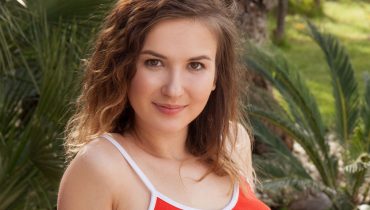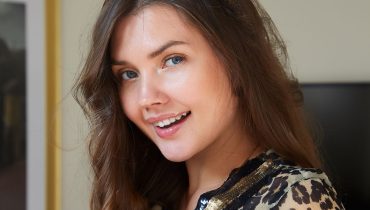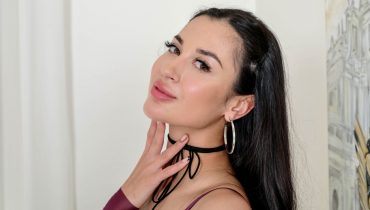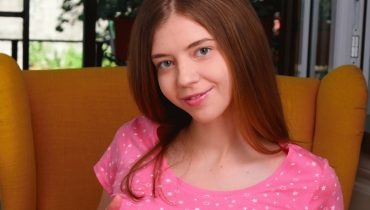Longevity has always fascinated me—not in the sense of simply living longer, but living in a way that feels meaningful, energetic, and deeply connected to the rhythms of daily life. For years, I explored different eating patterns, not because I wanted rapid change but because I wanted a sustainable foundation for long-term well-being.
The Mediterranean diet emerged as the most natural, enjoyable, and scientifically grounded approach I had ever tried. It felt less like a “diet” and more like a philosophy—a way of living that honors balance, community, and nourishment.
This article blends my personal journey with the Mediterranean lifestyle and the scientific understanding behind why this eating pattern is consistently associated with longer, healthier lives. Much of the research referenced here comes from respected institutions, including the Cleveland Clinic, the American Heart Association, and Harvard Health Publishing.
For those interested, Harvard’s overview of the Mediterranean dietary pattern offers a strong foundation (Harvard Health). While I do not offer medical advice, everything shared here reflects well-established research and long-term nutritional insights.
How I First Connected with the Mediterranean Approach
My relationship with food changed during a time in my life when I felt overwhelmed—long work hours, poor sleep, and irregular meals had slowly eroded my sense of well-being. I began waking up tired, digesting slower, and struggling with energy dips in the afternoon. At one point, I realized that food was no longer supporting me; I was simply eating for convenience.
A close friend suggested the Mediterranean style—not as a rigid diet, but as a way of eating that respects both body and culture. Initially, I misunderstood it as endless olive oil and grilled vegetables. But once I began exploring its nuances, I saw how deeply interconnected it was with longevity research, community rituals, gut health, and metabolic resilience.
What drew me in wasn’t the macro breakdown or the calorie count. It was the simplicity. Meals built around whole foods. Colors that come from produce rather than packaging. The calm of slow eating. The joy of preparing food intentionally rather than rushing through it. I started with small changes—cooking more often, integrating olive oil, replacing refined grains with whole ones, and choosing fish over heavier proteins. Over time, these shifts transformed both my meals and my mindset.
Why Longevity Isn’t Only About Adding Years
Long life alone isn’t the goal. The Mediterranean approach emphasizes “healthspan”—the years of life spent in good health, free from significant disease or mobility limitations. This shift in thinking changed how I approached wellness. Instead of chasing quick fixes, I looked for patterns that supported steady, cumulative benefits.
Scientific research often highlights biomarkers such as inflammation levels, lipid profiles, insulin sensitivity, and vascular health when discussing longevity. The Mediterranean diet interacts with all of these elements through a consistent supply of antioxidants, fiber, healthy fats, lean proteins, and polyphenol-rich ingredients. But beyond nutrition, lifestyle plays a role: movement integrated into daily living, regular social connection, and mindful meals all contribute to a systemic reduction in long-term stress—something strongly associated with metabolic aging.
The Science Behind the Mediterranean Diet’s Longevity Effect
While many diets come with bold claims and limited long-term research, the Mediterranean diet is exceptional for its extensive scientific backing. Generations of studies have linked it to lower rates of heart disease, better metabolic health, improved cognitive stability in older age, and reduced markers of chronic inflammation.
One of the first concepts that helped me understand this connection is the diet’s emphasis on nutrient synergy. Unlike nutrient-isolation approaches—where people focus on one compound or supplement—the Mediterranean pattern blends multiple nutrients, antioxidants, and healthy fats in combinations that the body metabolizes more efficiently. For example, the pairing of olive oil with tomatoes enhances carotenoid absorption. Whole grains combined with legumes create complete amino acid profiles. Herbs and spices reduce oxidative stress while adding flavor that eliminates the need for excess sodium.
A broad body of research also links monounsaturated fat intake—especially from extra virgin olive oil—with improved cholesterol ratios and reduced systemic inflammation. Omega-3 fatty acids from fish support heart health, cognitive maintenance, and vascular flexibility. Meanwhile, the fiber from fruits, vegetables, and legumes supports both gut bacteria and blood sugar stability, two elements increasingly tied to long-term disease risk.
How the Mediterranean Diet Changed My Daily Life
Before embracing this approach, my meals were erratic. Some days were full of takeout; others were rushed snacks eaten at my desk. By shifting toward Mediterranean principles, I noticed several transformations—subtle at first, then undeniable.
The first change was digestive comfort. Whole foods naturally rich in fiber, especially vegetables and legumes, helped create a more predictable pattern in my day. The second change was energy consistency. Instead of sharp crashes after heavy meals, the combination of healthy fats and slow-digesting carbohydrates provided a steady supply of energy. I also noticed a calmer relationship with food. Because I was eating meals built around satiety rather than restriction, I felt more in tune with my hunger cues.
Perhaps the most unexpected change came in the form of mental clarity. I don’t mean cognitive miracles—just a noticeable reduction in brain fog, especially during long workdays. Research increasingly supports the relationship between the Mediterranean diet and cognitive function, especially in older adults, but I found that even in my thirties, the shift was palpable.
The Heart of Longevity: Healthy Fats, Whole Foods, and Daily Rhythm
What makes the Mediterranean diet so powerful is not a single ingredient but the interaction of many. Extra virgin olive oil, for instance, is a cornerstone of the pattern. Packed with polyphenols and monounsaturated fats, it is consistently associated with healthier cholesterol profiles and reduced vascular inflammation. In my own experience, switching from heavily processed oils to olive oil had a profound impact—not only on flavor but also on how light and grounded I felt after meals.
Whole grains like farro, bulgur, and barley provide minerals and slow-release carbohydrates that support metabolic health. Fish supplies omega-3s that help maintain cardiovascular and cognitive function. Legumes such as white beans, chickpeas, and lentils provide plant-based proteins that nourish gut bacteria and regulate blood sugar. But equally important are the herbs—oregano, basil, rosemary, thyme—and the fresh ingredients like garlic and lemon that heighten flavor while offering their own antioxidant benefits.
Beyond Food: Lifestyle Rituals That Shape Longevity
Although food forms the foundation of the Mediterranean diet, longevity research repeatedly shows that lifestyle is equally significant. One of the patterns I adopted early in my journey was slowing down during meals. Instead of eating while standing, driving, or multitasking, I chose to sit. I learned to appreciate texture, aroma, and pacing. This shift helped reduce mindless overeating and created a calmer internal environment—important because chronic stress directly affects digestion and cardiovascular health.
Another factor is movement. Not vigorous exercise necessarily, but walking, stretching, gardening, and daily physical activity. When I adopted a Mediterranean rhythm, movement became more natural. I walked after meals, took stairs more often, and integrated flexible activity rather than scheduling intense workouts that felt burdensome. This pattern mirrors the daily habits observed in regions known for exceptional longevity, such as Ikaria and Sardinia.
Social connection is also a vital piece. Shared meals encourage slower eating, deeper conversation, and a sense of belonging. Studies consistently highlight how loneliness increases health risks, while social engagement improves markers of long-term well-being. Eating Mediterranean meals with friends not only made food taste better but made life feel richer.
How I Structure Mediterranean-Style Longevity Meals Today
I no longer approach eating with rules or rigid structures. Instead, I follow a rhythm shaped by balance and enjoyment. A typical day begins with something simple: Greek-style yogurt with berries and a drizzle of olive oil, or oats cooked with nuts and citrus. Lunch often includes whole grains, vegetables, and legumes—foods that leave me energized rather than drained. Dinner is usually centered around fish or plant-based proteins prepared with olive oil, herbs, and fresh produce.
This pattern is not restrictive. If anything, it feels expansive. There is room for bread, especially whole-grain or sourdough varieties. There is room for pasta, especially when paired with vegetables and a healthy fat source. There is room for occasional sweets, as Mediterranean longevity cultures often enjoy local desserts in small portions. The key is balance, not avoidance.
The Longevity Lessons I Learned Along the Way
Living through this long-term shift taught me several things I had never understood earlier. The first is that consistency matters more than intensity. Small, sustained changes—replacing processed snacks with nuts, adding an extra serving of vegetables, choosing fish twice a week—accumulate into meaningful impact. The second is that pleasure is essential. A diet that feels burdensome is rarely sustainable, but the Mediterranean pattern is inherently joyful.
The third lesson is that nourishment is relational. Eating with others, cooking with intention, and honoring local or seasonal foods create emotional well-being that supports physical health. The final and most important lesson is that longevity begins with the daily environment we create—our kitchens, habits, schedules, and communities.
Longevity is not a secret reserved for blue zones or people with perfect discipline. It is a culmination of small choices: meals built from whole foods, movement embedded in daily routines, social ties that strengthen emotional well-being, and an approach to eating that emphasizes pleasure as much as nutrition. The Mediterranean diet embodies all of these elements in a way that feels accessible, sustainable, and grounded in decades of scientific research.
For me, it has become more than a way of eating—it is a long-term lifestyle that offers clarity, balance, and joy. Whether you’re beginning your journey or refining it, the Mediterranean approach is one of the most adaptable and deeply nourishing pathways to support long-term vitality and well-being.




























































